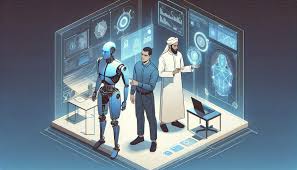Scale Your Marketing with Agentforce
Scale Your Marketing with Agentforce: AI-Powered Automation for Modern Campaigns Traditional marketing systems struggle to keep pace with today’s demand for precision, personalization, and scale. With marketing teams managing complex, multi-platform campaigns, repetitive work quickly becomes a challenge—41% of employee time is spent on low-impact tasks, and 65% of desk workers believe AI will help them focus on more strategic work. Enter Agentforce for Marketers, built with the Atlas Reasoning Engine. These AI-powered agents help businesses scale their workforces on demand, analyzing data, making decisions, and taking proactive action on tasks like answering customer inquiries and qualifying leads. If you’re ready to embrace a new level of efficiency, this Tectonic insight explores how Agentforce can revolutionize your marketing efforts. What is Agentforce for Marketing? Introduced at Dreamforce 2024, Agentforce represents Salesforce’s next evolution in AI. Powered by the Atlas Reasoning Engine, it enhances automation with retrieval-augmented generation (RAG) and contextual decision-making. Salesforce CEO Marc Benioff calls Agentforce “the third wave of AI—moving beyond copilots to highly accurate, low-hallucination customer service agents that actively drive success.” For marketers, this means automation that analyzes vast datasets, connects customer interactions across teams, and provides real-time insights—all while optimizing campaigns, streamlining workflows, and generating personalized content. The Core of Agentforce: Agentforce combines Agent Builder, Model Builder, and Prompt Builder, allowing marketers to: These tools enable seamless, personalized experiences while reducing manual effort. Key Autonomous AI Agents in Agentforce Agentforce’s AI-powered agents cover a wide range of marketing and sales functions, including: Core Features of Agentforce for Marketing Agentforce transforms marketing by delivering AI-driven insights, automating workflows, and personalizing customer experiences at scale. 1. AI-Driven Campaign Insights Agentforce integrates Salesforce Data Cloud and Marketing Cloud Intelligence to analyze customer behavior patterns, optimize targeting strategies, and improve campaign performance. 💡 Only 32% of marketers say they effectively use customer data for personalization. Agentforce closes this gap by providing real-time, actionable insights. 2. Real-Time Data Integration By consolidating insights from CRM records, external platforms, and unstructured sources, Agentforce ensures AI-driven recommendations power marketing automation and personalization. ✅ Example: OpenTable used Agentforce’s data-driven insights to boost customer engagement and increase case resolution rates. 3. Automated Campaign Workflows Agentforce eliminates repetitive tasks like email follow-ups, social media posts, and ad placements, allowing teams to focus on strategy. 💡 Marketers can set up automated email sequences that trigger based on customer behavior—without manual intervention. Use Cases: How Marketers Leverage Agentforce 1. Personalized Email Campaigns Agentforce analyzes customer interactions to send hyper-targeted emails based on past purchases, browsing history, and engagement. ✅ Example: An online retailer sends tailored product recommendations based on recent searches, increasing conversion rates. 2. Omnichannel Campaign Management Agentforce synchronizes messaging across email, social media, and ads, ensuring consistency across platforms like Marketing Cloud and Facebook Ads Manager. ✅ Example: A product launch campaign can automatically schedule email announcements, social media posts, and search ads—all aligned in messaging. 3. Advanced Audience Segmentation Using AI-powered behavioral analysis, Agentforce creates refined audience segments to deliver hyper-personalized marketing. ✅ Example: A luxury retailer identifies VIP customers likely to attend exclusive events and sends personalized invitations. 4. Performance Tracking & Optimization Agentforce continuously monitors engagement metrics, offering AI-driven recommendations for campaign improvements. 💡 This allows marketers to adjust strategies in real time, maximizing impact. Challenges & Considerations 1. Adapting to AI-Powered Marketing Many professionals feel unprepared for AI-driven tools. Organizations should invest in training programs to ease adoption and leverage Salesforce’s low-code tools for a smoother transition. 2. Ethical & Sustainable AI Implementation Responsible AI use is critical. Agentforce includes features to:✅ Mitigate bias in AI-driven processes.✅ Reduce environmental impact by optimizing hardware usage.✅ Ensure accuracy with real-time, dynamic data. 💡 Salesforce’s AI Red Teaming and Ethical AI Maturity Model help businesses implement AI responsibly. The Future of Marketing with Agentforce Agentforce is redefining marketing automation, eliminating repetitive tasks, enhancing personalization, and driving smarter decision-making. If you’re ready to scale your marketing with AI-powered efficiency, Agentforce is your next competitive advantage. Like Related Posts Salesforce OEM AppExchange Expanding its reach beyond CRM, Salesforce.com has launched a new service called AppExchange OEM Edition, aimed at non-CRM service providers. Read more The Salesforce Story In Marc Benioff’s own words How did salesforce.com grow from a start up in a rented apartment into the world’s Read more Salesforce Jigsaw Salesforce.com, a prominent figure in cloud computing, has finalized a deal to acquire Jigsaw, a wiki-style business contact database, for Read more Service Cloud with AI-Driven Intelligence Salesforce Enhances Service Cloud with AI-Driven Intelligence Engine Data science and analytics are rapidly becoming standard features in enterprise applications, Read more








